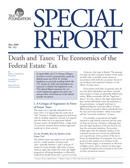I am a do-it-yourselfer. I love working around my house: Painting, building, and even stuccoing. But there are exceptions, like plumbing. I hate plumbing.
One thing I have learned about my handyman hobby is that I should expect to buy twice the building materials that I should need to complete the project. Experience tells me that I will use all of those materials. My habit is to try to build the first time, fail, and then to try it again. Almost invariably, I will end up building or fixing up the same thing at least twice – once or twice for practice, and then “for real.”
Some who would never consider fixing a garage door or stuccoing a wall would unthinkingly prepare their own wills and trusts using many materials found in bookstores. Bookstores abound with quick-fix be-your-own-lawyer books and CDs, featuring forms and fill-the-blank forms and programs for wills, trusts, and powers of attorney for healthcare decisions. Some of these materials are even state specific, offering different provisions for residents of different states.
Some of these do-it-yourself materials are fine, and may even be useful. If correctly used, many of these forms might work for a do-it-yourselfer. But suppose your case is different? Suppose you fail to properly use the form?
One thing I have noticed about building materials is that the old rule of thumb generally applies: you get what you pay for. The same is true in estate planning. But it is also true that legal documents such as wills and trusts oftentimes do not “speak” until the author is deceased or incapacitated. Because of this fact, in the case of estate plans the handyman analogy of buying double the building materials breaks down. If a wall is improperly built, it can be torn down and redone. But if a will is improperly drafted, or if it fails to state the intent of the author, there is often no opportunity for a second try. Rather, in many cases, when the author of the will or trust is incapacitated or deceased the planning “solution” either fails, or has completely unexpected and unwanted consequences.
Still, to be a good consumer of legal services, self education is beneficial in communicating needs to an estate planning professional. The following is an overview of some of the major estate planning topics, and which should be applicable in most states
Help! I Must Avoid Probate!
As a youngster, I recall seeing a thick blue booklet in my family’s bookshelf written by Norman F. Dacy, entitled How to Avoid Probate! The book is a classic, and helped to spawn the move within estate planning field away from wills, and toward “living” or “inter vivos” trusts (which is Latin for “during life”).
Some now associate the word “probate” with the twin evils of expense and delay. Many conclude that probate is “bad,” but may not have any idea why this is so, or even what exactly probate is. Simply stated, “probate” is a court-supervised method of transferring property and compensating creditors after death. In California, for instance, there are two main methods of communicating one’s wishes for disposition in a court supervised probate proceeding. The first is through a properly witnessed and executed will. The second method is through a “holographic” (or handwritten) will. To be valid, both types of wills have specific requirements, the details of which are beyond this article.
One myth many have is that a person’s assets will always go “to the state” if he or she dies without a will. This is false. The “intestacy” statutes provide for specific property dispositions in the absence of a will – however, these dispositions may not reach the desired result. For instance, in California should a wife with two adult children by her husband die, the husband would by definition already own one half (1/2) of the community interest of the entire estate. Under the intestacy statutes, the husband would also receive one half (1/2) of the wife’s community share (now, giving him a grand total three fourth’s (3/4ths) share of the total estate of both) and the two adult children would split the remaining one half (1/2) of their mother’s assets. However, this may not be the best: If the children are stingy and well-off adults, the wife might have wanted her entire estate to go to her surviving husband.
Another myth is that probate estates always go on endlessly, and are always horrendously expensive. While estates can be time consuming and expensive, most can be handled in months, depending upon the complexity of the estate, the number of creditors, and other factors such as the trauquility of family relationships. On the other hand, there is certainly truth to the criticism that probate estates can be lengthy affairs: Personally, I am familiar with a probate estate which has been pending since 1991 – for almost 15 years. Also, probate estates can take additional time if there are complicating circumstances like (for example) the heirs are difficult to locate or if there are disputes among family members.
Concerning the issue of expense, in California the ordinary attorneys and personal representative fees are determined by statute, and are set out specifically in the Probate Code. Extraordinary expenses may sometimes be charged, but the court must permit the added expense. Sometimes expenses may be saved if the personal representative waives his or her fee. If the executor or administrator is a family member, rather than an institution or professional, fees are often waived to save expense.
In the final analysis, trusts are usually more expensive than wills to prepare, but wills administered through a court supervised probate are usually more expensive and time consuming than administering a trust. However, at least in California there is another possible alternative: An expedited procedure for small estates (i.e., estates under $100,000, excluding exempted property) which does not require opening and administering a probate estate. Therefore, in some cases opening a probate may not even be necessary.
What About My IRA?
There are many opportunities to give money and assets without a trust, and without going through a probate. For example, a joint account with a right of survivorship is such a “non probate asset.” Such an asset, following the death of one of the account holders, immediately becomes the property of the surviving joint tenant.
Financial assets that allow for beneficiary designations may also pass outside of probate. Assuming that there has been a proper execution of account beneficiary form, Individual Retirement Accounts (IRAs), 401(k) accounts, and other Qualified Retirement Plans (QRPs) generally do not require probate administration. In fact, after years of appreciation within IRA accounts, an IRA beneficiary designation form can often command a large percentage of an overall estate – sometimes even more than a will or trust.
These beneficiary forms are important, although they are often given “short shrift.” While an IRA, for example, may in fact pass to heirs if there is no beneficiary designation, the heirs’ options for taking distributions are much more limited in such a case. There are often tax advantages to beneficiaries taking under a beneficiary designation rather than through an estate administration. Even so, the distribution and succession rules of IRAs are some of the most complex in the tax code and treasury regulations.
Do I Trust Trusts?
Trusts are all the rage – and for good reason. In general, you can avoid the probate court by transferring property to trust. When someone places property into a trust, they transfer ownership to a trustee, who manages and disposes of the property in accordance with the instructions in the trust agreement. Usually, in the case of a fully revocable trust (which means that the trust can be readily amended o
r revoked) the originators of the trust (called the “trustors” or the “settlors”) are also the trustees. In effect, the trustee in such a case manages his, or her, own money.
When you own your own property outright, you can obviously sell it, lease it, spend it, or save it. Depending upon how it is drafted, the same is true in the case of a settlor who places his property in a fully revocable living trust – the property in such a case may also be sold, spent, or leased. For all practical purposes, the settlor in such a case still owns the property. However, when the settlor dies, his or her successor trustees take over management of the trust, passing the property to the beneficiaries and usually avoiding probate court. A revocable trust of this type, by itself, confers no tax benefit even though there are certain types of trusts, and estate plans, which sometimes can provide such benefits.
Whither Will or Trust?
Like anything, there are pros and cons when choosing between a will and a trust. Most of the pros and cons relate to cost:
· Wills are generally less expensive than trusts to prepare. Trusts are usually more extensive documents, and require property transfers when “funding” them.
· Trusts are usually less expensive to administer than wills. However, probating a will can be expensive, depending upon the size of the estate. While there are costs associated with trust administration, it is usually less expensive than filing a petition to probate a will.
· Depending upon the circumstance, trusts can provide similar benefits as certain types of conservatorships. If a settlor becomes unable to handle his or her own affairs, the successor trustee can step in and make the necessary decisions to manage the settlors’ financial affairs. Wills do not offer this benefit. However, if a person suffers from dementia, for example, a conservatorship “of the person” may still be necessary.
There are benefits to each approach. Also, the law governing wills and trusts may vary from state to state. You should consult with a competent estate planning attorney to choose the right approach for you.
© 2006 Larry D. Stratton



